Summer Learning Loss for High School Students
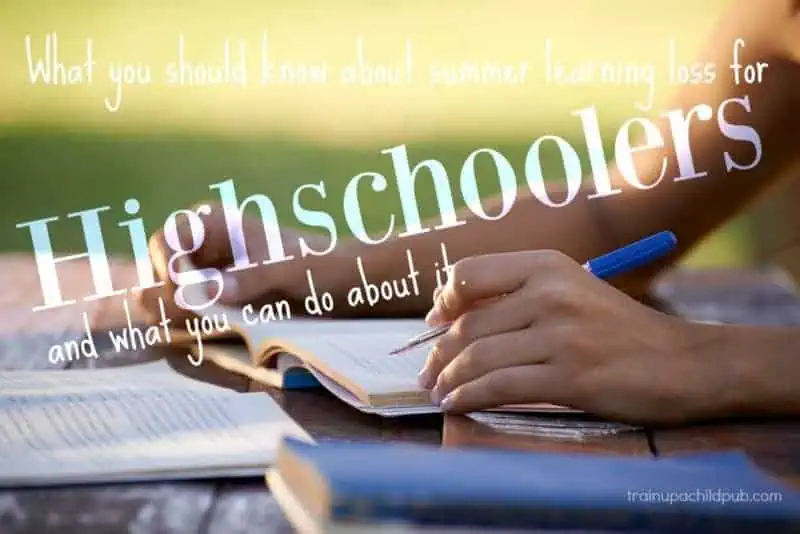
Do you have a rising ninth-grader this year? Do you know that this summer is one of the most critical transitions in a young person’s academic career, according to the National Summer Learning Association? If you didn’t know — it’s true. Summer learning loss in high school students (especially rising high school students) is a real thing.
If you’ve read the first two posts in this series about summer learning loss with your elementary and middleschoolers, then you’ve read this:
What your student forgets from the time the school year ends in the spring until your homeschooling starts up again at the end of the summer equals 1-2 months of math and some measurable degree of reading and language arts learning.
It just…vaporizes… during the summer.
I don’t say this to scare you. I say it so you can make a plan.
Because I know you. You want to bring your kids’ homeschool education to life while till getting your other stuff done. So you don’t want to blow off your summer without taking steps to make sure your kids don’t lose any ground, right?
So plan math, reading, and writing activities for this summer to keep your kids on target.
And if you aren’t convinced yet … research shows that often this summer learning loss is cumulative.
Please don’t be fearful about this. Just make a plan right now for your high school student to work on math, reading, and writing during the summer. It doesn’t have to be hours a day, just enough so your student doesn’t forget what she’s already learned.
This isn’t a hard thing to do. But but it does take determination and planning to put a system in place. And a commitment to follow up.
Your system needs to keep your high schooler working on math, reading, and writing on a daily or almost daily basis. During most of the summer vacation.
I know that schoolish things are the last things on teens’ summer list of to-dos. But it’s important. And doing it will save your time and energy as well as your high schooler’s next fall.
What I recommend you do to avoid summer learning loss for high school students
With this age group, it helps to discuss what work you want them to do. But let them help decide the “when.” In other words, it is not negotiable that they are going to be doing some math, reading, and writing during the summer.
What is negotiable is when it’s going to be done.
But before we talk about “when,” let’s talk about “what.”
Because high school work is more challenging and time-consuming than previous work it’s harder to get everything done during this important four years. So one option to consider is getting a head start on next year’s work during the summer.
I know YOU need a break, so try and choose things that your student can do by himself, with your husband if he’s willing and able, or maybe even an online class where someone else does the teaching.
With those ideas in mind, let’s get specific.
How to avoid summer learning loss in high school with regular math practice
The easiest thing to do might be to keep doing math during the summer. Either finish last year’s math text or begin next year’s.
Again, if someone other than you can work with your student, all the better. If you don’t want to supervise, perhaps a neighborhood college student would be happy to do so for a small fee.
Because it’s the summer, after all, you certainly could choose to go at a slower pace than you usually do. Maybe do two or three lessons a week instead of five, for example. Remember, your student needs a break, too.
Another benefit of working on math during high school summers is that your student may be ready sooner to take the S.A.T./A.C.T college readiness exams. Starting earlier on next year’s math could provide your student extra time to retake the exams more than once (or twice). Most students are able to get better scores with at least one retake.
If you don’t want to start a curriculum yet for next year for whatever reason, have your high school student try his hand at this site (easier) or this site (more advanced) for some regular math practice. (I didn’t check out everything on these pages, so please do your due diligence here and check them out before he does.)
Normally, If you have a mathematically gifted student, I’d suggest sending them to a math camp for part of the summer. Here are some online math camp ideas. If you need to plan ahead to do this, consider it for next summer.
Editor’s note: this post contains an affiliate link from a product I’ve read and loved. Should you buy something using an affiliate link on my website, we may receive a small commission at no extra cost to you. This goes for coffee.
How to avoid summer learning loss in high school with a reading plan.
 I recommend all high school students read this book during the summer before ninth grade, or whenever they can fit it in.
I recommend all high school students read this book during the summer before ninth grade, or whenever they can fit it in.
I’ll tell you upfront – it will not be their favorite book. They don’t even have to read the whole thing to benefit from reading it. (Have them at least read through most of Part III, though.)
The easiest way to accomplish this is to have them read short sections at a time and narrate (tell back) to you about what they read.
The second easiest way is to have them take reading notes.
But the best way to make sure they are actually reading and understanding the book is to read it in short sections along with them, then listen to the narration and talk about anything missed.
If you look at this book at Amazon.com, you can see by the comments that it is an excellent but rather tedious book to read –but it’s worth it. So worth it.
Why? One reason is that you’ll help prepare your high school student for the jump in difficulty between earlier school work and high school level work.
Secondly, part three of this book will teach your high school students how to read fiction, nonfiction, poetry, plays, and more. This will help them get the most they can out of their reading — in high school, in college, and beyond. And if you read this along with your student, it will help you, too!
If your student has already read How to Read a Book, I recommend ordering your high school curriculum early enough to begin the reading earlier. Alternatively, you could have your student combine the reading and writing with the suggestion below under the ‘Writing’ section.
If you want to take a break from a curriculum this summer, then try this for reading.
If you want to take a complete break from curriculum this summer, have your high school student spend about 45-60 minutes reading most days. It’s best to choose books from different genres, but it’s perfectly okay to focus on your student’s natural interests. Whether your students are interested in sports, music, art, movies, climate contol, politics or finances, you can find books they’d enjoy.
One other point about reading a variety of books is that this builds a better foundation for writing well!
For example, if your student is interested in mountain climbing, she can choose a(n) :
- autobiography written by a mountain climber
- how-to book about mountain climbing
- fictional story about mountain climbing
- non-fiction book about mountain climbing
- biography about a famous mountain climber
… you get the idea. Also consider older books as well as more modern ones. (Read the reviews first!)
Whenever you can align a student’s interests with their homeschooling it makes their work so much more engaging.
But again, if you have time — please also consider assigning How to Read a Book. You’ll be so glad you did. Note that the above link to How to Read a Book is to a newer version that I have not read. The link above the one in this paragraph is for the one I have read. The newer one has new material. The reviews are for the older one, I’m sure.
How to avoid summer learning loss in high school with a plan for writing
Frankly, writing is the area that we’re most likely to skip during the summer. After all, it’s more effort for many students and definitely more effort for you to have to evaluate. But since writing is the foundation for a large part of high school work, I’d make the effort.
Here are some ways to make it happen.
- Have your student choose a classic novel or more from the ones you suggest and keep a reading response journal* daily after reading. *Have him choose a quote from his reading and copy it with the page number into his journal. Then he writes a paragraph about why he chose that particular quote, how it moved him, or what he liked about it, learned about it, etc.
- Want to give your student the gift of being a confident and competent high school essay writer? You know, one who jumps write into whatever essay you assign without grumbling because s/he knows exactly what to do?
Have your high schooler complete our Essay Styles for High School course.
Designed as a one-semester course, you could have your student start and finish it in the summer if you made it an every day thing and you were committed to keeping up to date on grading.
Alternatively, you could have your student work on it at a more gradual pace during the summer and finish it during the fall semester. Just award your student the 1/2 credit in High School Composition whenever the course is completed.
By the way, we recommend all students take this course to be prepared for our literature and history courses. (It can also be taken at the same time as any of our literature or hstory courses.)
- Another idea if you want to keep things light during the summer, you could have your high school student keep a journal during the summer and respond to writing prompts, if needed.
Again, let your student weigh in about when he’s going to be working during the summer.
Working regularly is important. But your teen might prefer to get it out of the way first thing, or sleep in and do it during the heat of the afternoon, or before going to bed.
Math and writing could also be on alternate days. It doesn’t matter when it’s done, just that it’s done.
By the way, I suggest you check your student’s work at regular intervals, too, especially if you aren’t teaching. You are slowly teaching them to be more independent, but take it from me, it’s important that you’re regularly putting your eyes on their work. In the summer as well as during your regular homeschooling times.
However you set up your summer learning program, know that you’re doing an excellent thing for your child. With regular practice in reading, writing, and math, you’ll not only avoid summer learning loss in your high school students , they’ll hit the ground running when you get back to regular homeschool hours in the fall. Win-win!
![]()
P.S. Do you have a high schooler that could use a solid review of math prior to beginning high school? I’m talking fractions, percents, ratios, etc. See my post about avoiding the summer slump in middle school. Grab some of the math resources mentioned there to catch your high schooler up quickly.
Have younger kids? Don’t miss the first two parts of this summer learning loss series!
Part I, concerning preschool through elementary, and Part II covering what you need to know about summer learning loss for middle schoolers.
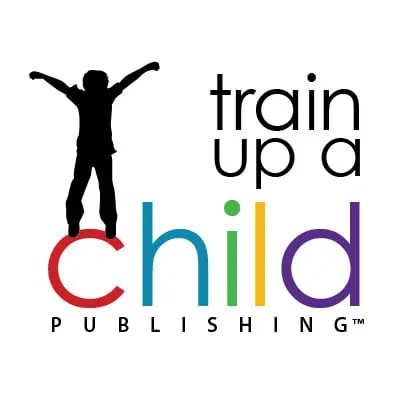

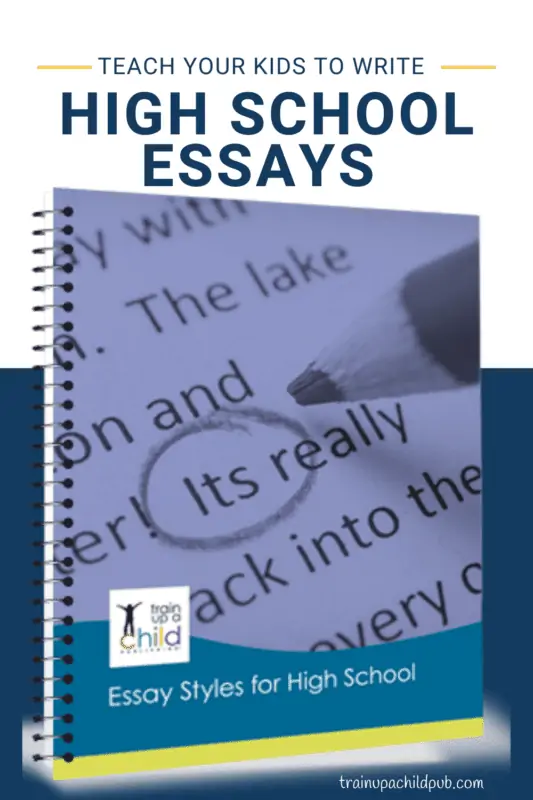

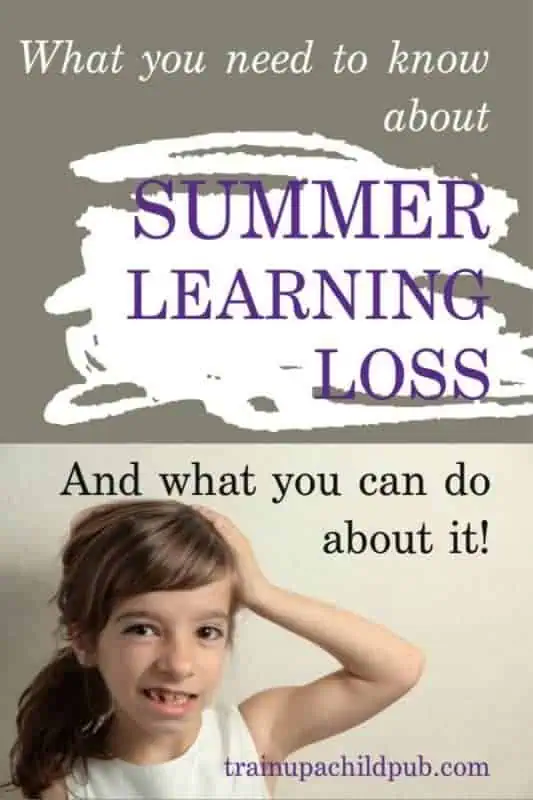
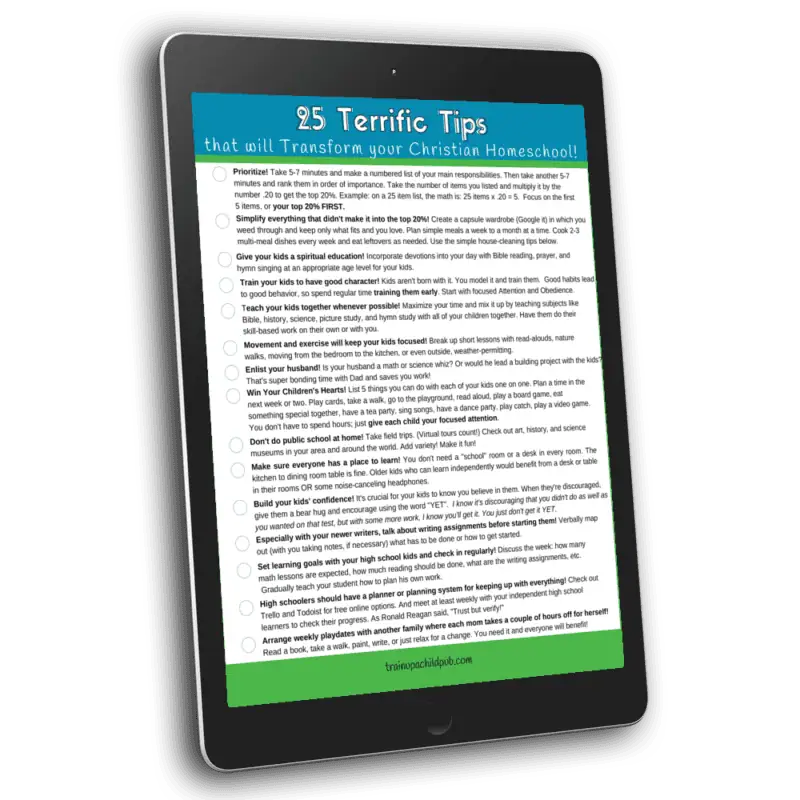
Thank you for sharing this great information. I had no idea!
You’re welcome, Varun! Thanks for reading and taking the time to leave a comment.